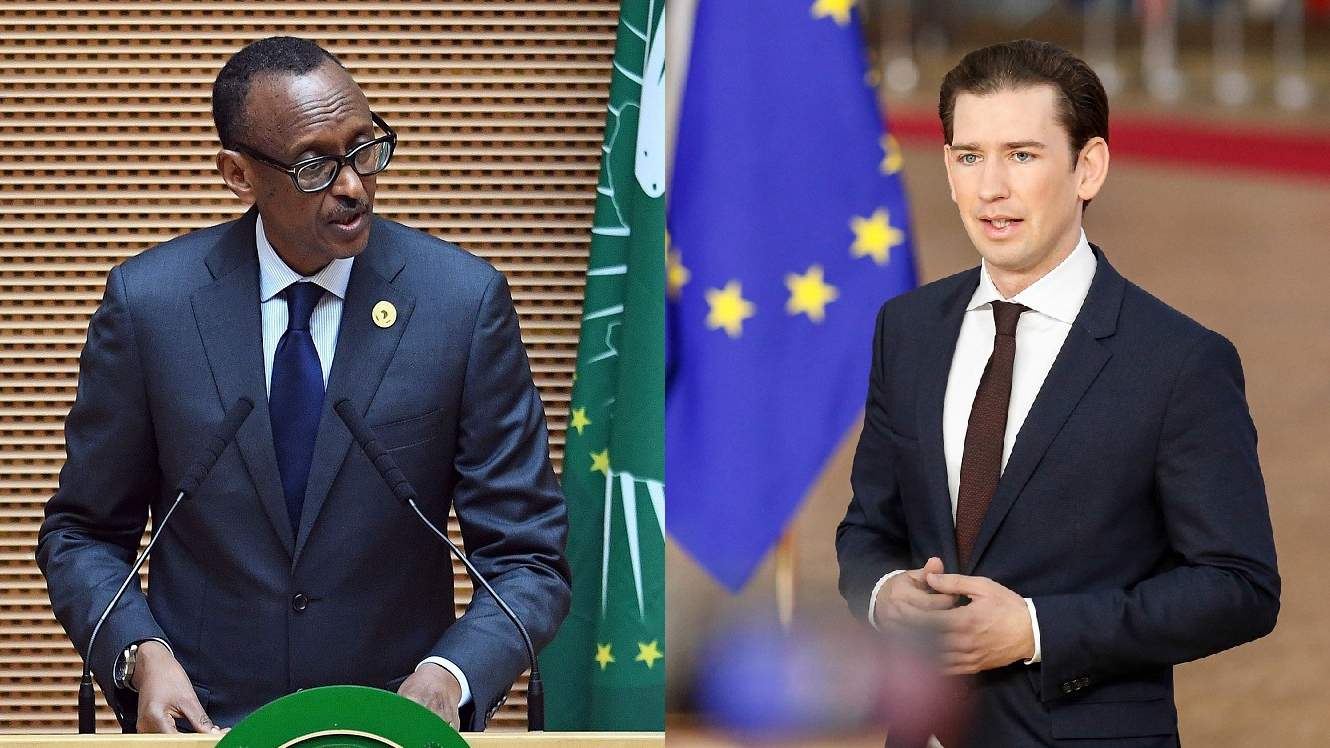European and African leaders are meeting on Monday in Vienna for a two-day forum to discuss cooperation, development and innovation in the digital age.
The meeting is the culmination of Austria's six-month presidency of the European Union (EU).
But what have joint Africa-EU endeavors achieved in the past and what can we expect from this meeting?
Cooperation in the digital age
Dozens of government and business leaders, CEOs, entrepreneurs and heads of start-up companies are due to attend the "High-Level Forum Africa-Europe" in Vienna, hosted by Austrian Chancellor Sebastian Kurz and Rwandan President Paul Kagame, currently the chair of the African Union (AU).
Among them: German Chancellor Angela Merkel, Egyptian President Abdel Fattah al-Sisi, Dutch Prime Minister Mark Rutte, Guinean President Alpha Conde, AU Commission Chairman Moussa Faki Mahamat, European Commission President Jean-Claude Juncker, and representatives from the UN, the World Bank, Google and BMW.
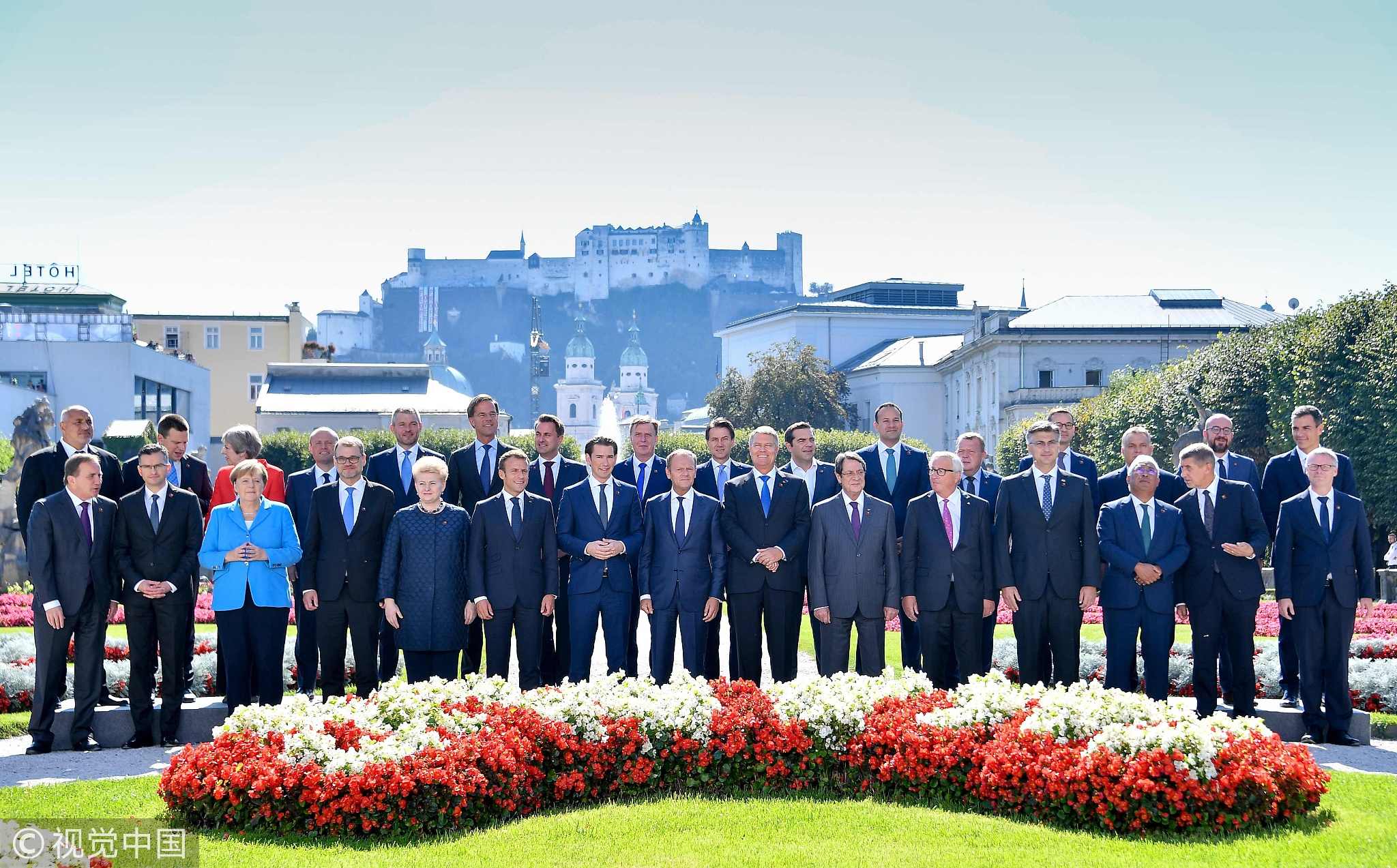
EU leaders pose for a family photo during the EU Informal Summit of Heads of State or Government in Salzburg, Austria, September 20, 2018. /VCG Photo
EU leaders pose for a family photo during the EU Informal Summit of Heads of State or Government in Salzburg, Austria, September 20, 2018. /VCG Photo
Under the theme "Taking cooperation to the digital age," Tuesday's meetings – following a welcome dinner on Monday – will include round table discussions on fintech, agriculture, jobs, education, sustainable energy, ecommerce, and connectivity in Africa.
Over 1,000 participants are expected at a parallel business-to-business event, including about 100 African start-ups who will present their solutions to issues affecting the continent.
With Africa's population due to grow to two billion by the middle of the century, and four billion by the end of the century, "it is absolutely necessary for us to work closer together with African states," Kurz told the Austria Press Agency in September after announcing the forum.
Rather than focusing merely on aid as in the past, there needs to be a bigger push towards "long-term economic cooperation in sectors of the future," he said.
Building a partnership
Africa and Europe are long-time partners.
Heads of state and government come together every few years for a joint EU-AU summit, the last of which took place last year in Abidjan, Cote d'Ivoire.
Business, civil society and youth conferences are held on the side, along with regular meetings at parliamentary, ministerial and local levels.
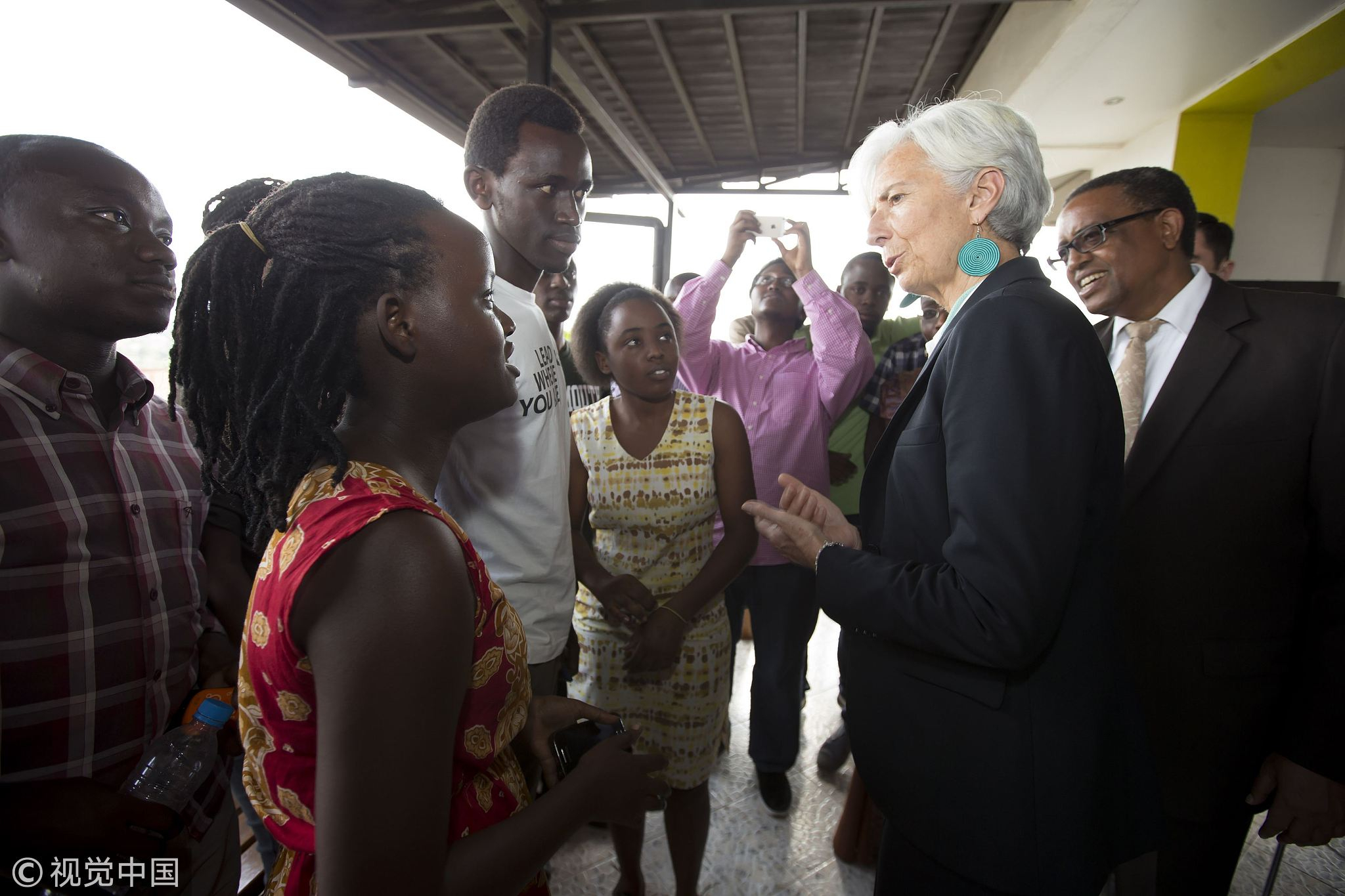
International Monetary Fund (IMF) Managing Director Christine Lagarde ( 2R) talks to youths at Rwandan start-up kLab in Kigali, January 28, 2015. /VCG Photo
International Monetary Fund (IMF) Managing Director Christine Lagarde ( 2R) talks to youths at Rwandan start-up kLab in Kigali, January 28, 2015. /VCG Photo
Various projects have also been set up to boost investment, infrastructure, and education across the two regions.
In September, Juncker proposed a new "Africa-Europe Alliance for Sustainable Investment and Jobs," with the aim of creating 10 million new jobs in the next five years, providing 30 million people with electricity and facilitating road access for millions more.
In the long term, the EU hopes to build a "continent-to-continent free trade agreement" with Africa, he noted.
Just for show?
Yet many see the relationship as skewed.
"Even as it talks of partnership, the EU continues to set the agenda, often fails to consult its African partners and remains stuck in a post-colonial mentality," Tighisti Amare, a senior program manager at Chatham House, a UK think tank,
wrote ahead of the 2017 Abidjan summit.
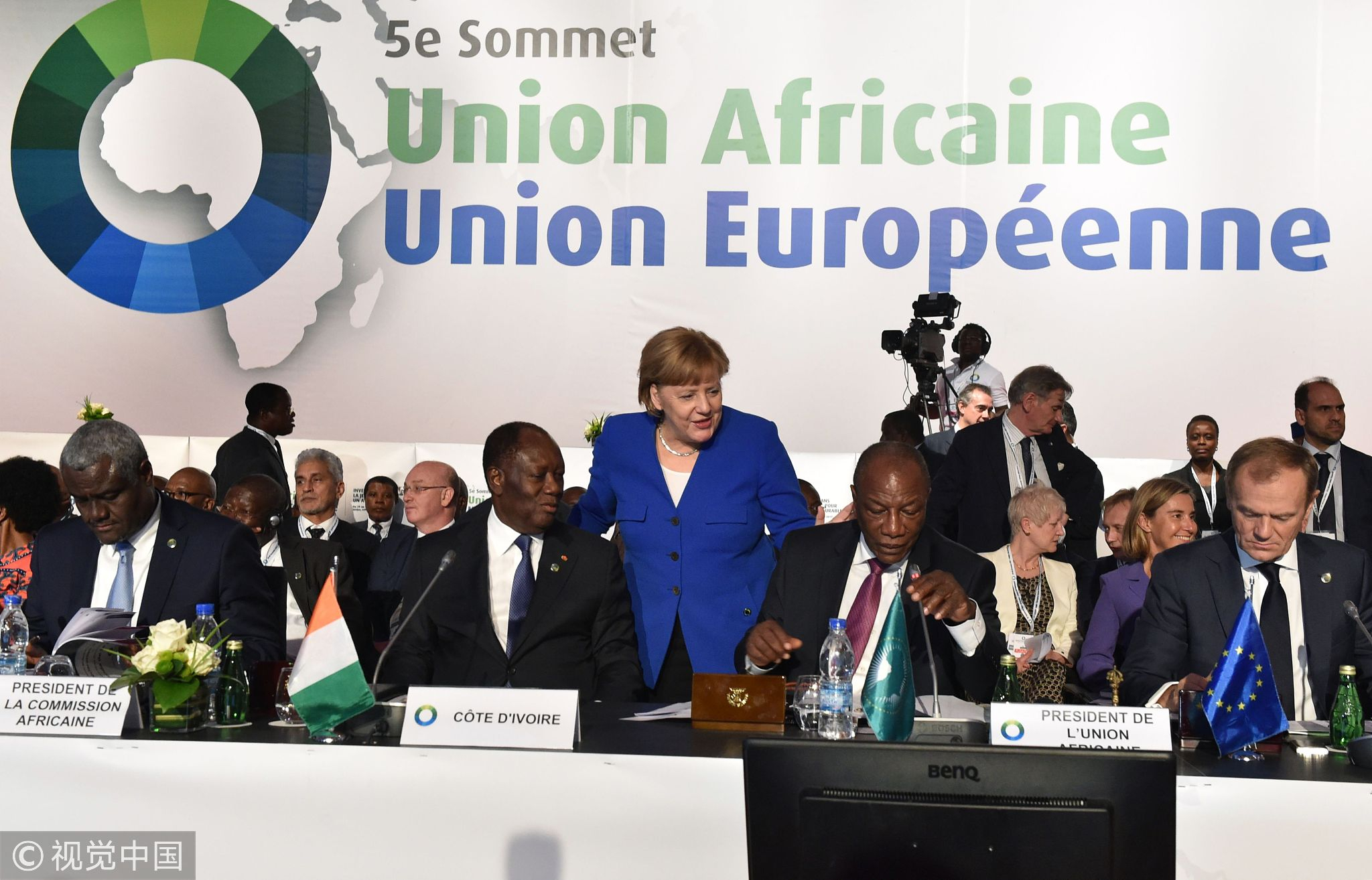
German Chancellor Angela Merkel (C) greets Cote d'Ivoire's President Alassane Ouattara (2L) and Guinea's President and African Union (AU) chairman Alpha Conde (2R) at the 5th AU-EU summit in Abidjan, November 29, 2017. /VCG Photo
German Chancellor Angela Merkel (C) greets Cote d'Ivoire's President Alassane Ouattara (2L) and Guinea's President and African Union (AU) chairman Alpha Conde (2R) at the 5th AU-EU summit in Abidjan, November 29, 2017. /VCG Photo
"The era of babysitting is over," he insisted. "We will never grow up if we keep believing we need European, American, Asian or other babysitters."
Each EU member tries to make the most of its six-month chairmanship of the 28-nation bloc – which comes every decade or so – and Austria has touted the Africa forum as one of the highlights of its presidency.
As such, some see it as a prestige project, meant more for show than for hard-hitting discussions.
"I don't think summits like these produce much, except short-lived attention in the press," Birgit Englert, an Africa expert at the University of Vienna, told CGTN Digital.
"Really tackling (issues) requires more time and pulling in a lot of actors."
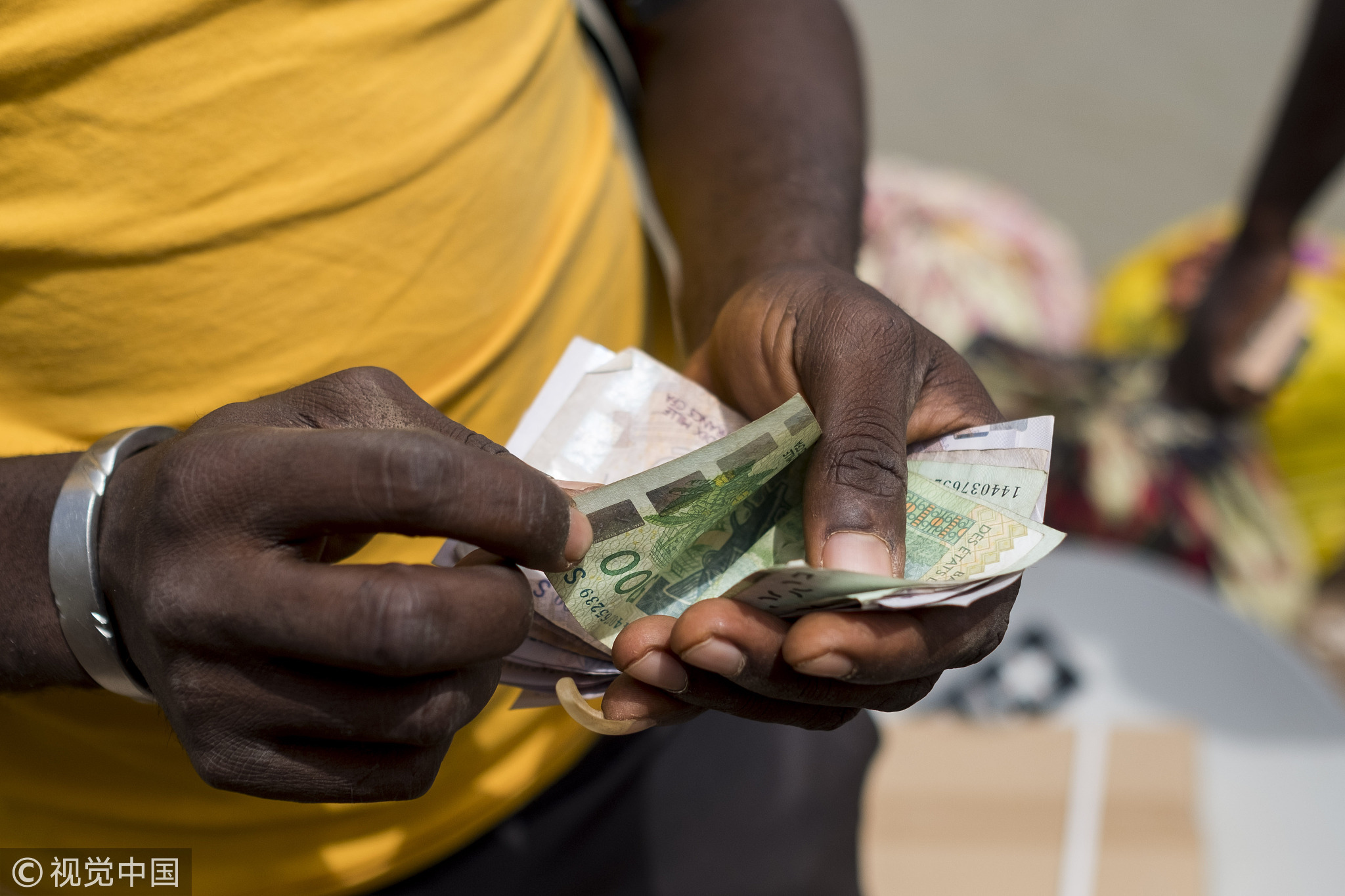
A man counts out West African CFA franc currency banknotes by the fishing harbor in the port area of Bissau, Guinea-Bissau, February 10, 2018. /VCG Photo
A man counts out West African CFA franc currency banknotes by the fishing harbor in the port area of Bissau, Guinea-Bissau, February 10, 2018. /VCG Photo
Indeed, one of the most contentious issues at the moment – mass migration, which Europe is trying to counter and also needs African support for – is noticeably missing from the agenda of the Vienna forum.
Even as leaders talk up plans for growth and investment, key issues go unnoticed.
Migration has at least been the focus of other recent summits, but "issues like the plundering of raw materials by European companies, land grabbing, etc… don't interest the EU as much, even when they are brought up," said Englert.
Two-way street
Whether concrete measures are approved and new partnerships are struck in Vienna remains unclear.
Nevertheless, it will offer a forum for discussion between two neighboring regions with many shared issues of concern.
EU data shows 36 percent of African trade is with the European Union, and 40 percent of foreign direct investment on the continent comes from the EU.
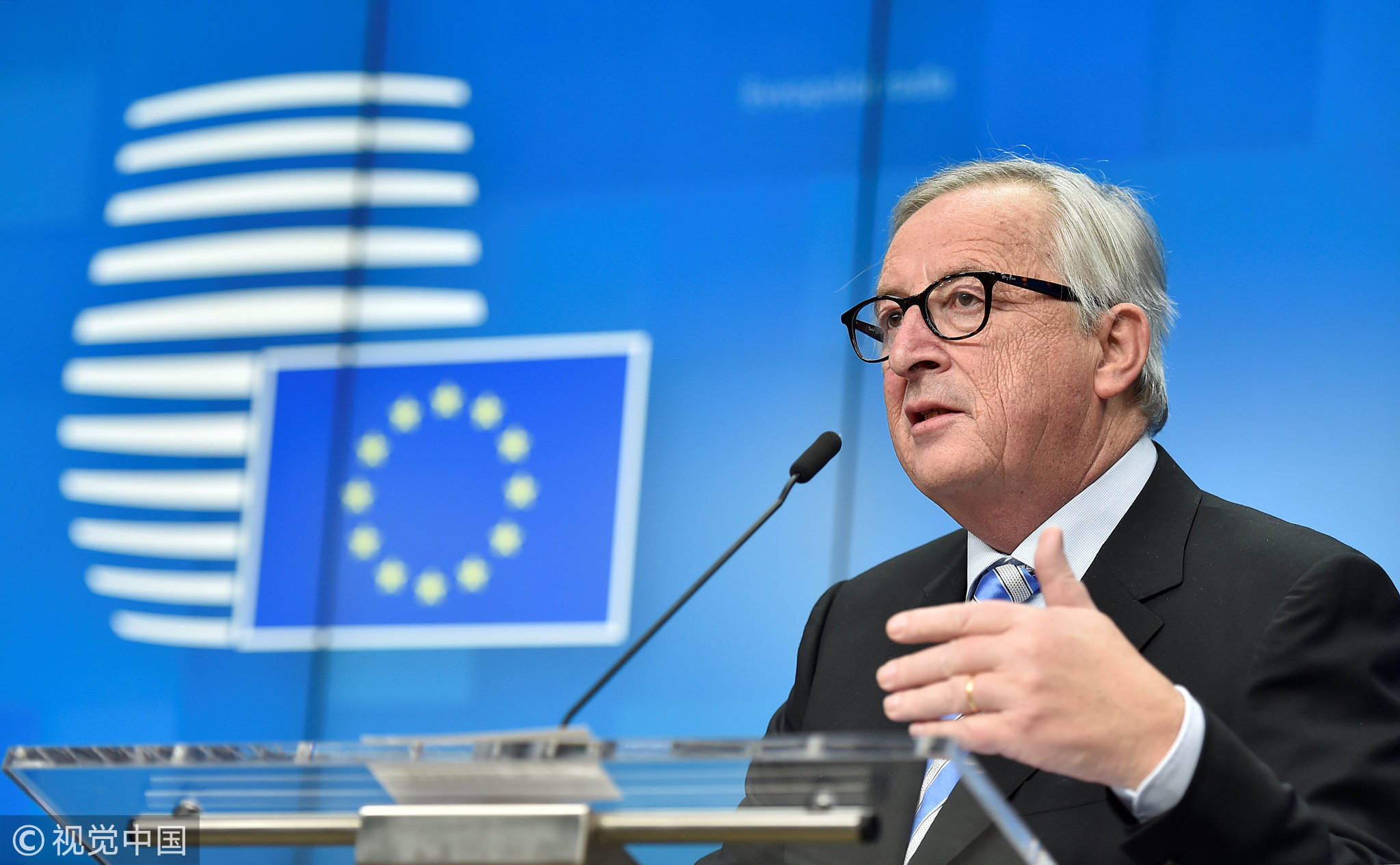
European Commission President Jean-Claude Juncker speaks at a news conference in Brussels, Belgium, December 14, 2018. /VCG Photo
European Commission President Jean-Claude Juncker speaks at a news conference in Brussels, Belgium, December 14, 2018. /VCG Photo
NGOs also predict that behind-the-scenes talks will broach subjects not listed on the official agenda, such as migration.
"Africa does not need charity, it needs true and fair partnership," Juncker said in his state of the union speech in September. He added: "And we Europeans need this partnership just as much."
(Cover picture: CGTN composite picture of VCG photos showing Rwandan President and AU chairman Paul Kagame (L), and Austrian Chancellor and EU chairman Sebastian Kurz (R).)

